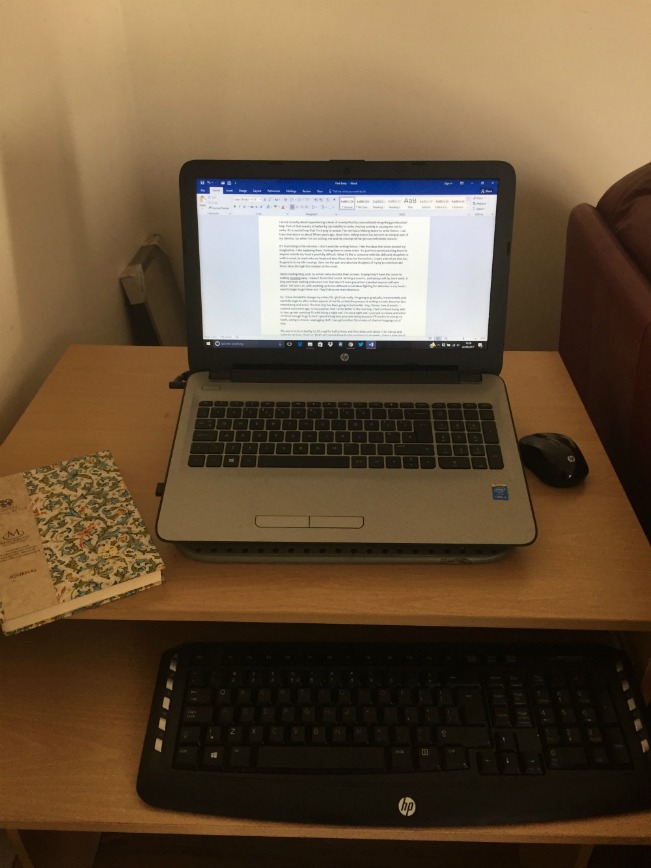
Well I finally finished the planning portion of ‘Hidden Messages’ and have begun the actual writing part. And it is going well. While it was frustrating to plan in such detail, I’m glad for every hour spent in that process. The amount of unnecessary time and words it is going to save me (wait for the blog post where I discover the planning was a waste of time, that’ll be a doozy) will, in my estimation, be enormous.
So, now I can write a little bit about one of my favourite components of novel writing, World Building. I like writing Fantasy and Science Fiction, so World Building is something I either get good at or just don’t bother writing. I think however, even if I wasn’t determined to be a writer, I’d still indulge in World Building. Ever since reading ‘Lord of the Rings’ I’ve imagined other Worlds. I’ve populated them, given them cultures and religions, and then made things as difficult as possible for them, just to see what happened.
Good sinister fun, but daunting to transmit with words. When I began writing I had two ways to deal with how intimidating and technically challenging this was. In ‘The Easers’ I imagined a very small World and told the story within that small space. In ‘The Bucket’ I told a very small story, within a much larger World. The World of ‘The Bucket’ is one that is almost fully realised inside my head, but at the time of writing ‘The Bucket, I didn’t feel able to visit it with tens of thousands of words. Thus, the brief visit, in the dark, that was Captain Yilda’s time in the dungeon.
Even ‘Hidden Messages’ is not a World wholly spun from my imagination. There are aliens but not as one might imagine, and that’s all I’m saying about that. The novel I will write after this is set in Kerry but the one after that, Gandalf willing, will be a full length novel set in Captain Yilda’s World. And the reason I’ve put it so far into the future is because I need to get a lot better at World Building.
There are two aspects to World Building. The first is all about inventing to the full extent of your imagination. And then imposing rules, consistency and a relatable logic on the World you’ve invented. It’s fun. And depending on your particular interests you’ll either concentrate on languages (Tolkien) or politics, cultures, relationships, economics, military conflict and magical systems etc. But no matter what gets you going the most, all the sociological, anthropological, geological and a dozen other ‘ogicals’ have to be accounted for. I bloody love it.
The second aspect, however, is where the writing skill comes into play. In planning your novel, you have to decide what is the barest of barest minimum of information the reader will require to understand the World in which your story is being told. Just think Tolkien, then do the opposite. Anyway, if your novel is a huge success you will get silly money to write books that contains all the World Building stuff you had to leave out. Console yourself with that. Until then, minimum of information necessary is the key. And even then, it is a lot of information to have to relay.
I recently read, ‘The Long Way to a Small Angry Planet’ by Becky Chambers and I was thinking about ‘Hidden Messages’ a lot at the time. I found myself examining her World Building. It was flawless. It was seamless. It was smooth and sneaky and surreptitious and it was delicious. Alien Worlds, future humans, alien species, interstellar conflicts, technology, economies and cultures all drip fed, while the reader is getting on with the story.
That’s the skill, insinuating your bloody enormous info-dump into a story, while avoiding the dreaded ‘e’ word. For exposition is death. Yes, Tolkien expositioned like it was 1999, but that was Tolkien. Even Terry Pratchett didn’t expect his readers to endure exposition and he was writing about the Discworld. We did end up buying the maps, cookbooks, atlases and encyclopaedias though.
And to make it even more difficult, you need to avoid exposition while also finding a way to pack the necessary information into the opening few paragraphs, pages and chapters. You have to find a way to situate the reader in the World you’ve invented without overloading them with information, because otherwise they will simply leave.
Most importantly, however, it’s fun. I’m surprised that I think so, but it is. In ‘Hidden Messages’ there is so much I know about the World that is informing the story but you’ll never see it. I, as the writer, get to decide that and then live or die by those decisions. It’s heady stuff to be honest.
So, that’s my take on World Building. I hope you enjoyed it. I have no idea what I’ll wrote about next week. Hopefully it won’t be a whiny 500 hundred words on why I can’t write novels. But it is a possibility.
PS Just in case you’re wondering, I love Tolkien. I write because of Tolkien. It’s just that he did everything wrong.
Previous: Want to Write Now Next: There Be Progress Here



